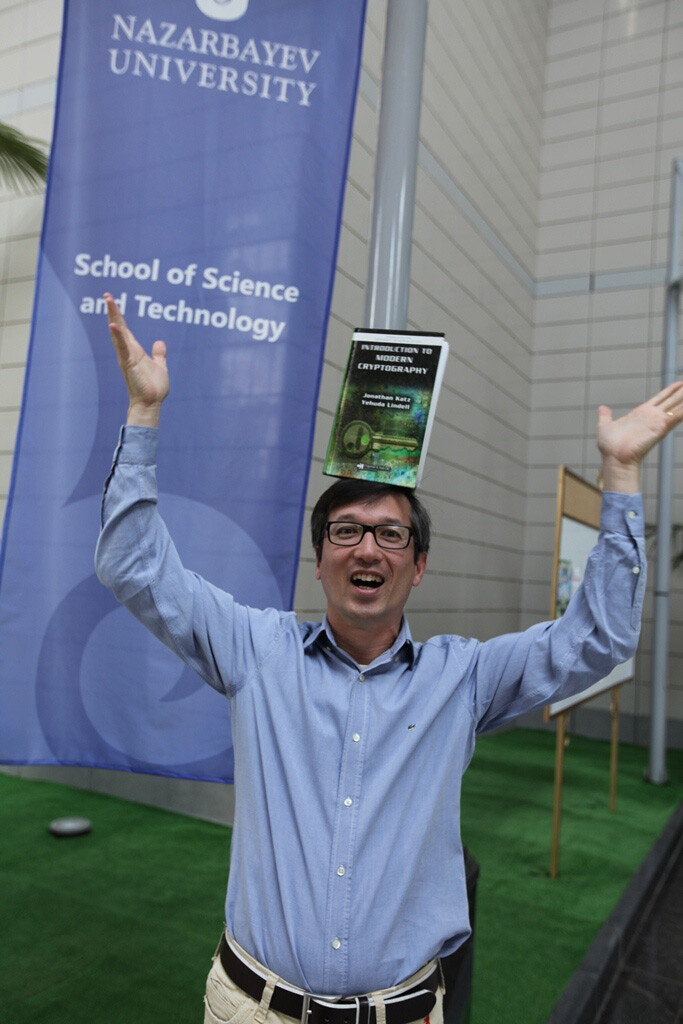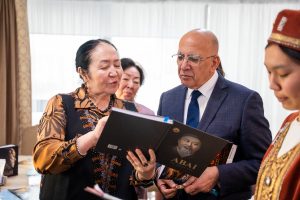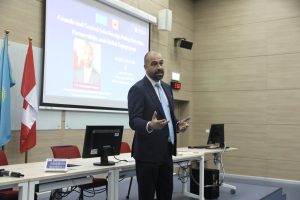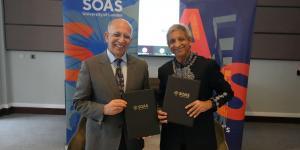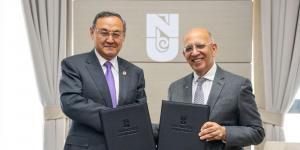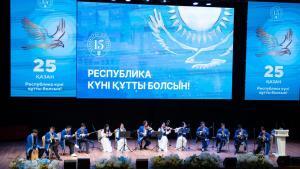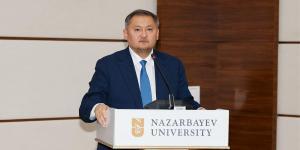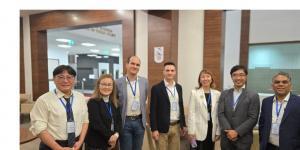Назарбаев Университетінің Бизнес коммуникациялар жөніндегі қауымдастырылған профессоры Дженифер Льюис «басшы лауазымындағы қазақстандық әйелдердің мансаптық жолында кездесетін гендерлік кедергілерді» зерттей отырып, ғылыми жобаның алдын ала нәтижелерін жариялады.
Осы мақсатта американдық сарапшы 2016 жылы макро, мезо және микро сияқты гендерлік тосқауылдардың үш түрін анықтаған АҚШ зерттеушілері Эми Дейл мен Лианн Дзюбинскидің теориясын қолданды.
Макро деңгей – бұл:
а) әйелдер таңдауының әлеуметтік-мәдени шектеулері (білім мен мансапты таңдау);
б) қоғамдағы гендерлік стереотиптер (әйелдер туралы тым қарапайым пікірлер);
Мезо деңгей – бұл: дискриминация (жанама немесе айқын дискриминация, жынысына байланысты кемсіту);
Микро деңгей – бұл: еңбек пен отбасылық міндеттер арасындағы қақтығыс (жұмыс пен отбасы арасындағы тепе-теңдіктің болмауы).
«Гендерлік коммуникациялар пәнінің оқытушысы бола отырып, мен өз студенттеріме гендер деген не және оның қағидаттары қандай екенін жай ғана түсіндіргім келмеді, өйткені олар қазақстандық компанияларға жұмыс істеуге барған кезде осы саладағы білімін іс жүзінде қолдана алулары керек. Осылайша ғылыми зерттеуіме қызығушылық туды. Мен Қазақстанда 10 жылдан астам өмір сүріп келемін, бірақ әлі күнге дейін компаниялардағы ішкі жағдайдың қандай екенін білмеймін, өйткені интернационалдық ЖОО-да жұмыс істеймін. Сондықтан жобаның басты мақсаты – бұл жерде әйелдердің басшылық лауазымдарды атқаруына кедергі келтіретін нәрселердің бар-жоғын түсіну; егер бар болса, онда оларды анықтау. Кедергілерді анықтау әрі қарай қалай және қайда жылжу керектігін түсінуге көмектеседі», — деп түсіндірді Назарбаев Университетінің профессоры.
Орта және атқарушы буындағы басшы әйелдермен сұхбат барысында алынған алдын ала деректер Қазақстанда әйелдердің жоғарыда аталған барлық деңгейлерде кедергілерге тап болатынын көрсетеді.
Сонымен, макро деңгейде әйелдер әрдайым мамандықты немесе оқу бағдарламасын өз бетінше таңдау мүмкіндігіне ие бола бермейді. Сонымен қатар, олар Кеңес дәуіріндегі стереотиптерге жиі кездеседі, мысалы, «жұмысқа қабілетті барлық әйелдер жұмыс істеулері керек».
Мезо деңгейде қазақстандық әйелдер жұмысқа орналасу кезінде гендер негізінде кемсітуге жиі ұшырайды. 20 жастан 30 жасқа дейінгі тұрмысқа шықпаған қыздар және баласы жоқ әйелдер ерекше қауіпті аймаққа түседі. Ал ерлерді осы лауазымдарға жалдауға қатысты фаворитизм өте айқын түрде бар және рекрутерлер оларды жасырмайды. Бұған сондай-ақ бірдей жұмыс көлеміне қарамастан жалақының әртүрлі деңгейі де кіреді.
Сайып келгенде, жұмыс пен отбасылық міндеттер арасындағы тепе-теңдікті сақтауға тырысудағы әйелдердің қиындықтарын білдіретін микро деңгейде әйелдер отбасын таңдауға мәжбүр болады. Льюистің пікірінше, COVID-19 пандемиясы бұл мәселені одан әрі ушықтырды, өйткені ерлі-зайыптылардың екеуі де үйден жұмыс істейді, бірақ әйел балаларға жиі алаңдауы керек.
«Менің ойымша, екі жылдан кейін біз үйден жұмыс істеудің алғашқы нәтижелерін көреміз, атқарылған жұмыстардың аз болуына байланысты, мансап деңгейінде жоғарылатылатын әйелдер саны кем болады. Олар балаларға көңіл аударуға мәжбүр болды, сондықтан бәріне бірден үлгеру мүмкін емес еді. Бірақ адамдар тек атқарылған жұмыс негізінде көтеріледі», — деп толықтырды Льюис.
Бұл ретте микро деңгейдегі гендерлік кедергілерді зерттей отырып, ғалым қазақстандық әйелдердің тиімді артықшылығын анықтады – бұл балаларды өз ата-анасының тәрбиесіне қалдыру мүмкіндігі, бұл қазақстандық әйелдерге қандай да бір шамада отбасының игілігі үшін өздерін табысты мансаптан айырмай, теңгерімді табуға көмектеседі.
Профессор Дженифер Льюистің «басшы лауазымындағы қазақстандық әйелдердің мансаптық жолында кездесетін гендерлік кедергілер» тақырыбындағы зерттеуінің түпкілікті нәтижелері елдегі эпидемиологиялық жағдай қалпына келтірілгеннен кейін ұсынылатын болады.
Анықтамалық ақпарат:
Профессор Эми Дейлдің (Shippensburg University of Pennsylvania) және Лиэнн Дзюбинскидің (Biola University) ғылыми жұмысы «Making the Invisible Visible: A cross-Sector Analysis of Gender-Based Leadership Barriers» деп аталады.
Дженифер Льюис – Назарбаев Университетінің Жоғары бизнес мектебінің қауымдастырылған профессоры. Қысқаша өмірбаяны және зерттеу саласы: https://gsb.nu.edu.kz/faculty-profiles-ru/dzhenifer-lyuis9/
Толық ақпарат алу үшін pressa@nu.edu.kz эл поштасына немесе +7 7172 706091 телефоны бойынша Назарбаев Университетінің Пресс-офисіне хабарласыңыз.
